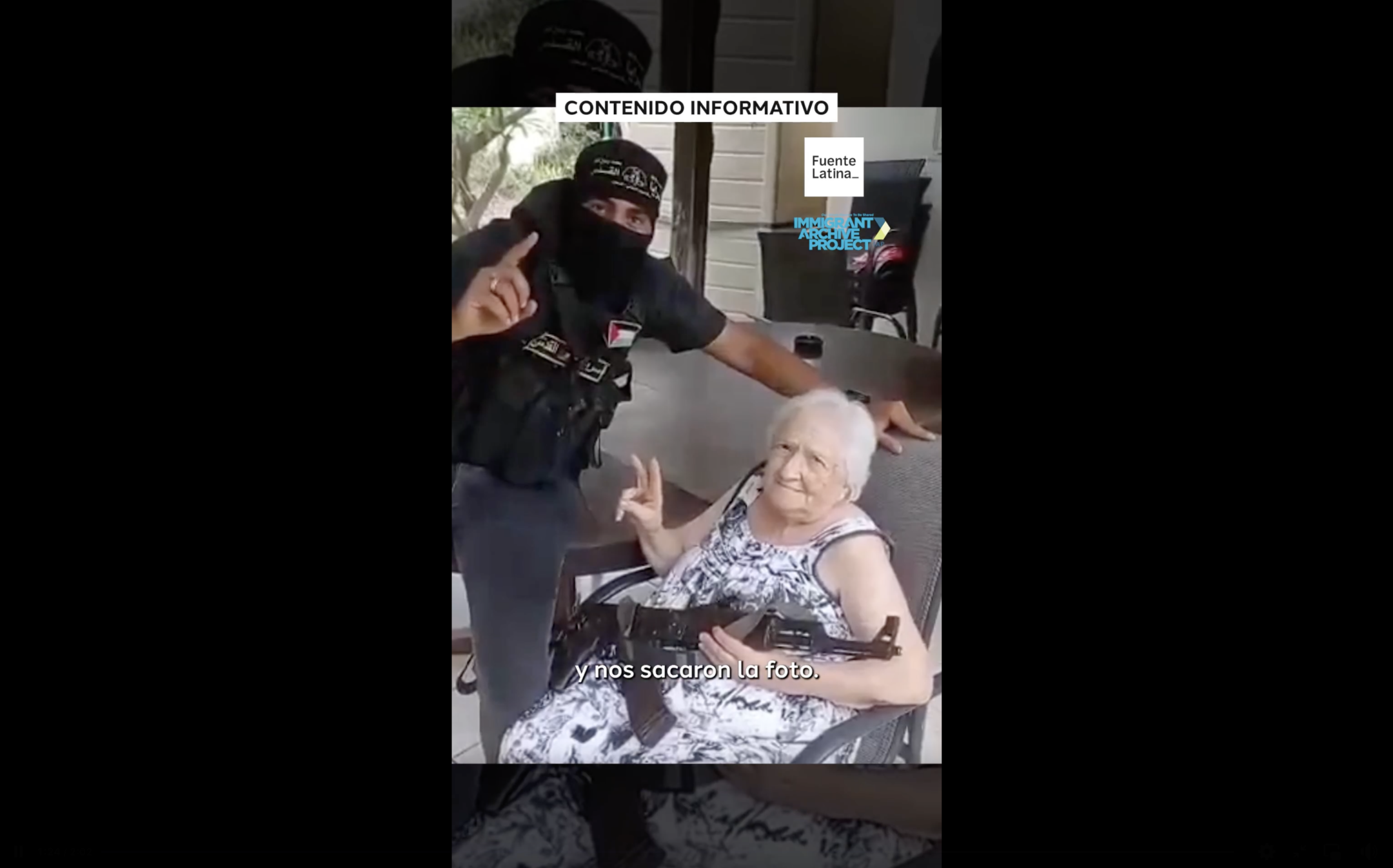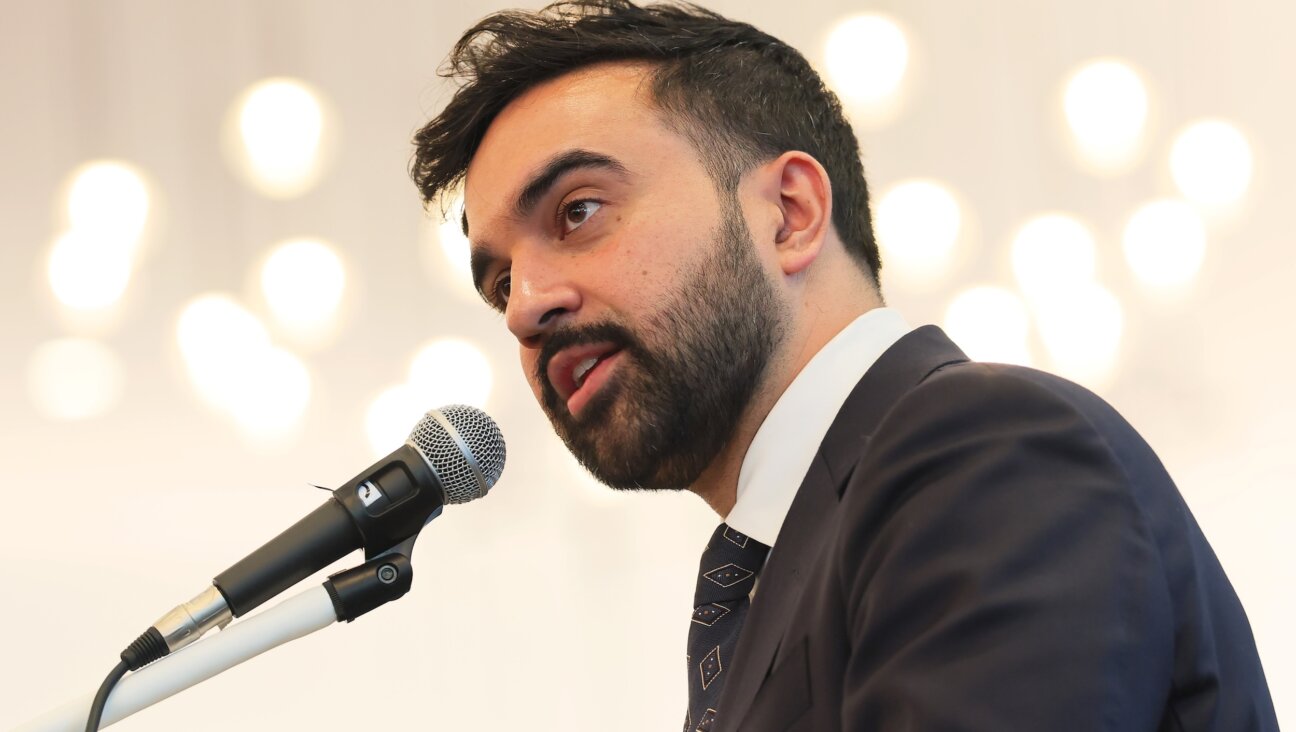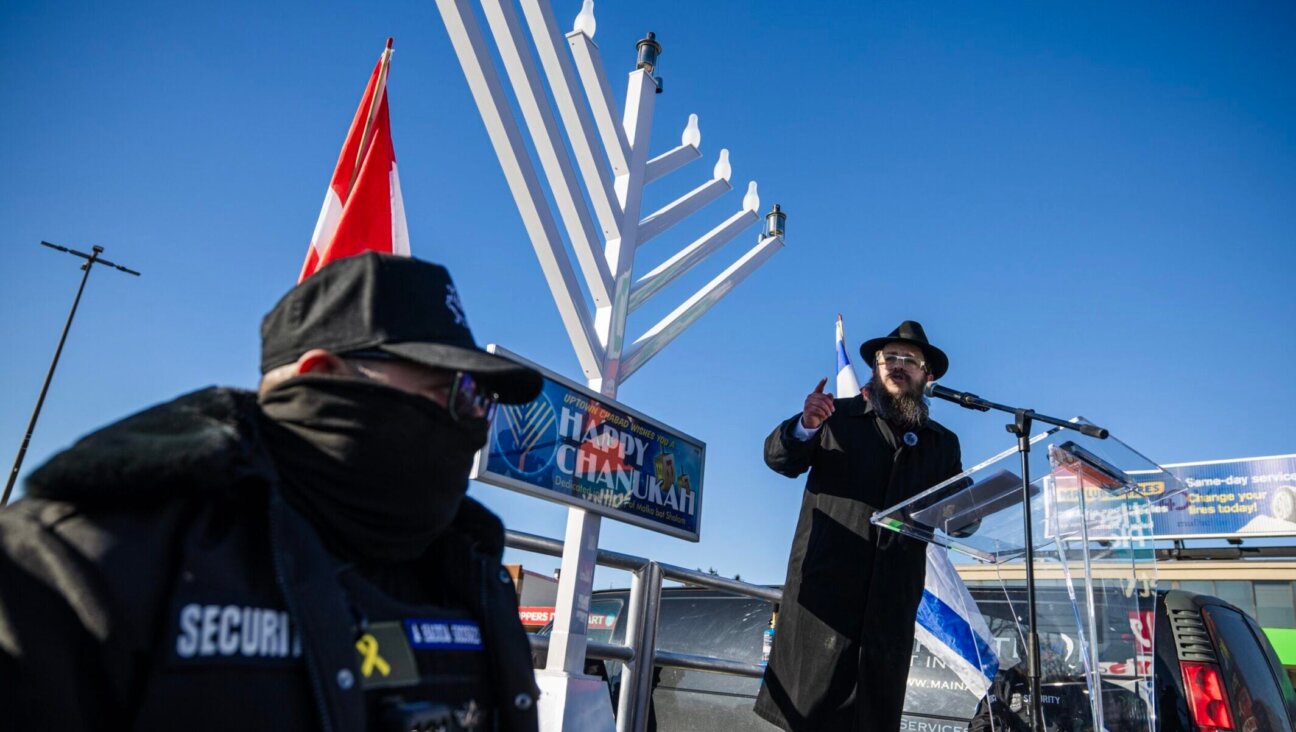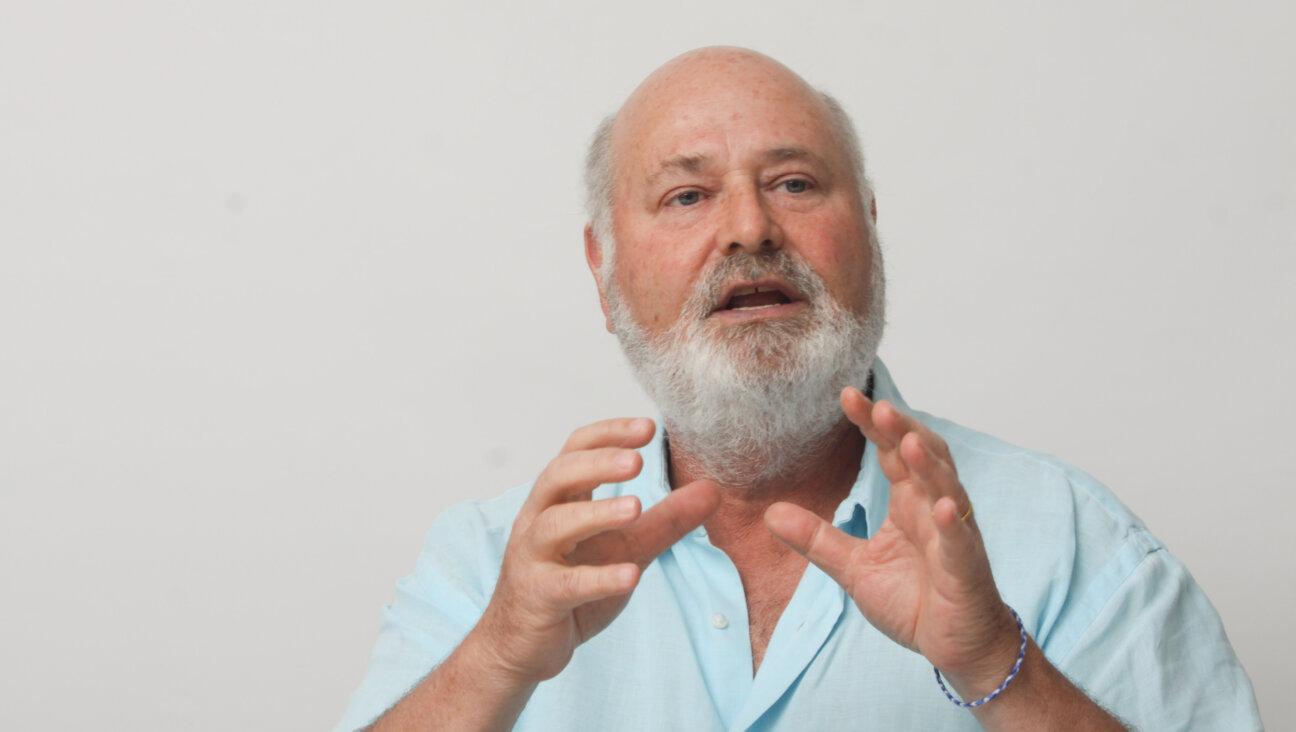Ester Cunio, 90, says talking about Messi saved her on Oct. 7. Now she wants the soccer star to help free her grandsons.
“Messi? I like Messi!” Cunio said a Hamas terrorist told her before taking a selfie and not following through on plans to abduct her.

90-year-old Ester Cunio says in a new Fuente Latino documentary that she bonded with a Hamas terrorist over the soccer star Lionel Messi on Oct. 7. (Screenshot)
BUENOS AIRES (JTA) — The grandmother of two Israeli hostages remaining in Gaza says she evaded capture herself on Oct. 7 by bonding with a Hamas terrorist over the Argentine soccer star Lionel Messi — and now wants the athlete to help secure her grandsons’ freedom.
Ester Cunio, 90, was at her home on Kibbutz Nir Oz on the day of the massacre, when eight members of her extended family were taken hostage. Six of them — including three young children and their mothers — were released in November, but David and Ariel Cunio remain in Gaza.
Now, Ester Cunio has revealed her story publicly for the first time, in a documentary titled “Voices of October 7: Latino Stories of Survival” produced by Fuente Latina, a pro-Israel Spanish-language media group. The documentary focuses on Latin American immigrants to Israel who were affected by the terrorist attack, many of whom lived on Kibbutz Nir Oz.
Cunio recalled that two terrorists broke into her house and found her sitting in a chair. “Where is your family?” they demanded.
“I’m here alone, I live by myself. Go check the house and you will see,” Cunio said she told them.
A Hamas terrorist told her that she was coming with them to Gaza, as a hostage. He said that, after the attack, no one would be left in the kibbutz, and that the only thing left would be fire.
Cunio said communicating with her attackers was difficult. As an Argentine native who moved to Israel as an adult, she spoke neither English nor Hebrew well enough to make herself understood.
The terrorist was aggressive, Ester recalled, but she said she pushed back, saying, “Don’t talk to me. I don’t know your language and my Hebrew is bad. I speak Argentinian Spanish.”
That triggered a question: “What is Argentinian?” she said the terrorist asked.
Her answer changed the tenor of the interaction. “Do you like soccer?” she asked. When he said he did, she answered, “I’m from where Messi is from.”
The international celebrity, one of the most widely beloved athletes of all time, drew a reaction. “Messi? I like Messi!” the terrorist replied, according to Cunio’s account. Then he grabbed her arm, gave her an AKA47 gun, told her to make a peace sign and took a selfie with her.
The picture became a symbol of Hamas’ attack on Oct. 7, but Cunio herself did not: She was not abducted that day. And now, she is hoping that Messi will join an international effort to lobby on behalf of the hostages, and ultimately to help her grandsons return to their families.
“If he knows that I mentioned it and was saved, now I would ask him for my grandchildren who are locked up there,” Cunio says in the film. “I would tell him to please pray to God because they are guys worth gold.”
David Cunio is an Israeli actor who acted in the award-winning-movie “Youth,” directed by Tom Shoval. His wife and twin 3-year-old daughters were released from captivity in November amid a 10-day ceasefire deal. Sharon Aloni Cunio has since become a vocal advocate for her husband’s release.
Ariel Cunio had just returned from an extended trip to Central and South America and had adopted a puppy only weeks before being kidnapped. He was abducted with his girlfriend and her brother, who both remain in captivity.
Messi has not responded to Esther Cunio’s story, which has gone viral in Argentinean media since the clip from the documentary began circulating on Thursday.
But the captain of Argentina’s World Cup-winning soccer team who also plays for the professional team in Miami has been to Israel multiple times — as part of his Barcelona squad’s “Peace Tour” in 2013, and for a match between Argentina and Uruguay in 2019.
Messi also supported a 2014 match organized by Pope Francis to promote peace between Israelis and Palestinians, but he did not play due to an injury. He has also been denounced by critics as a Zionist.
This article originally appeared on JTA.org.













